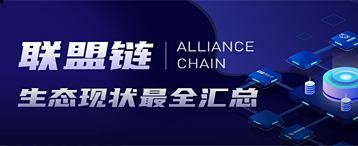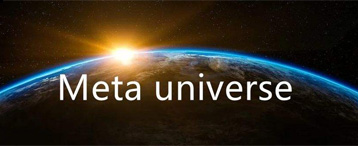-
TXBPzCuKtUzHVjuu8Kaaf1Uoz7uARxiXwz
 joint
joint 2022-09-21
2022-09-21 4529
4529 NEWS
NEWS
-
Summary:Although there are many historical examples of effective decentralized political institutions, cultures, and businesses, the dominant perception of web3 decentralization is that it is inherently vulnerable when faced with its utilitarian effectiveness.
Although there are many historical examples of effective decentralized political institutions, cultures, and businesses, the dominant perception of decentralization is that it is inherently vulnerable when faced with its utilitarian effectiveness. The reason for this is simple and intuitive. One voice is more effective than many in terms of clarity of decision making. Unified visions and clear divisions of authority are powerful tools when developing laws, products, strategies, and infrastructure because they avoid duplication of effort and leverage creative visions to achieve common goals.
Decentralisation, by contrast, requires communication and compromise. In a centralized system, the dissenter may not like the decision that has been made, while in a decentralized system, the dissenter may not be able to make a decision at all. Thus, decentralized systems have historically been thought of as local, small-scale, or regional solutions: when considering large numbers of decision makers, location, and the ability to communicate effectively, decentralization introduces barriers that do not exist in centralization.
Unfortunately, the efficiency and stability of centralization come at a price. When control is in the hands of the very few, the invasion of personal freedom, choice and privacy is inherent. We have seen this reality shape the Internet, and the fundamental value of this tool lies in the networks (connections) it supports. The open and decentralized protocols that created these networks in the first place in Web1 have long since been surpassed by the complex products and services created and controlled by centralized operators. Such trade-offs may have been necessary because such products and services were built from the ground up using proprietary technologies that required significant capital to develop and proprietary systems to protect. But technological progress rarely stagnates, and any benefits from these trade-offs become increasingly costly.
Developments in programmable blockchain, composable smart contracts, and digital assets offer us the opportunity to create new paradigms. Although these technological advances do not solve the problem of collective decision making, they are a powerful coordination tool and, more importantly, they give builders the tools they need to create a decentralized digital infrastructure that can generate and be supported by a strong decentralized economy. On this decentralized and shared infrastructure, products and services that are comparable or even better than those of today's centralized systems can be built, and ultimately secure our fundamental freedoms. It started with a single decentralized blockchain network, grew into decentralized products and services known as "DeFi," and is now expanding to the Internet that will be built on decentralized infrastructure.
While the concept of Web3 is just beginning to take shape, its success depends on whether it can provide the self-empowerment benefits of decentralization. Note that this includes fairer ownership among stakeholders, less scrutiny and greater diversity. As web3 begins to unravel the increasingly complex web2 products and services, there is a need to deepen our understanding of the core tenets of decentralization so that they can be applied to these more complex systems. In advancing this goal, much insight can be gained by studying the successful decentralized blockchain networks and smart contract protocols that have opened the way to decentralization, as well as the technological, economic, and legal developments that have accompanied the growth of Web3.
Web3 decentralized framework
Few topics in web3 are as broad as decentralization, so it's important to start with a framework to discuss its role in the web3 system. As a structure, decentralization is an abstract term because its meaning is based on the comparison with centralization and the degree to which decision making is far from a centralized mechanism. Without further exploration, decentralization is just a measure of how centralized any process is.
Subsidarity is the concept embraced by decentralisation. It states that decisions should be made in the least decentralised manner yet effective. This principle aims to find a balance between collaborative and integrative decision making, which inherits the efficiency and unity inherent in centralized decision making. While certain systems will always be best suited to centralization, we expect the spread of programmable blockchains and smart contract protocols to provide powerful and efficient decentralized systems on which both decentralized and centralized products and services can be built.
Decentralized governance
The vast majority of blockchain networks and smart contract-based protocols use decentralized governance. Decentralized governance has many benefits in the three decentralized standards discussed in this article, including:
- Web3 systems can be made more secure by assigning technical control of such systems to decentralized groups, limiting the ability of any party to control the governance of such systems.
- To provide meaningful representation of stakeholders in decision making for WEB3 systems, decentralized governance helps ensure long-term incentive alignment among stakeholders. This capability, along with enhanced security, means that effective decentralized governance can contribute to the overall health and sustainability of the decentralized economy of Web3 systems.
- Support the decentralization of the law by reducing the dependence of stakeholders on the management of any individual or group, thereby reducing the risk of potential information asymmetries.
While blockchain networks use many different consensus mechanisms, smart contract-based protocols typically use decentralized autonomous organizations (" DAO"), which are member-controlled organizations that operate (or should operate) without centralized authority. DAO typically use token-based voting, and DAO maintain specific control over the smart contracts that form the underlying agreement, as well as any digital asset Treasury within the agreement. Governance smart contracts that form and manage DAO eliminate transactions between counterparties by automating decisions and management processes that are typically performed by traditional management structures.
Disclaimer:As an open information publishing platform, shilian only represents the author's personal views and has nothing to do with shilian. If the article, picture, audio or video contains infringement, violation or other inappropriate remarks, please provide relevant materials and send it to: 2785592653@qq.com.
Hint:The information provided on this site does not represent any investment suggestion. Investment is risky, and you must be cautious when entering the market.
ShilianFan group:Provide the latest hot news, airdrop candy, red envelopes and other benefits, WeChat: rtt4322.
















